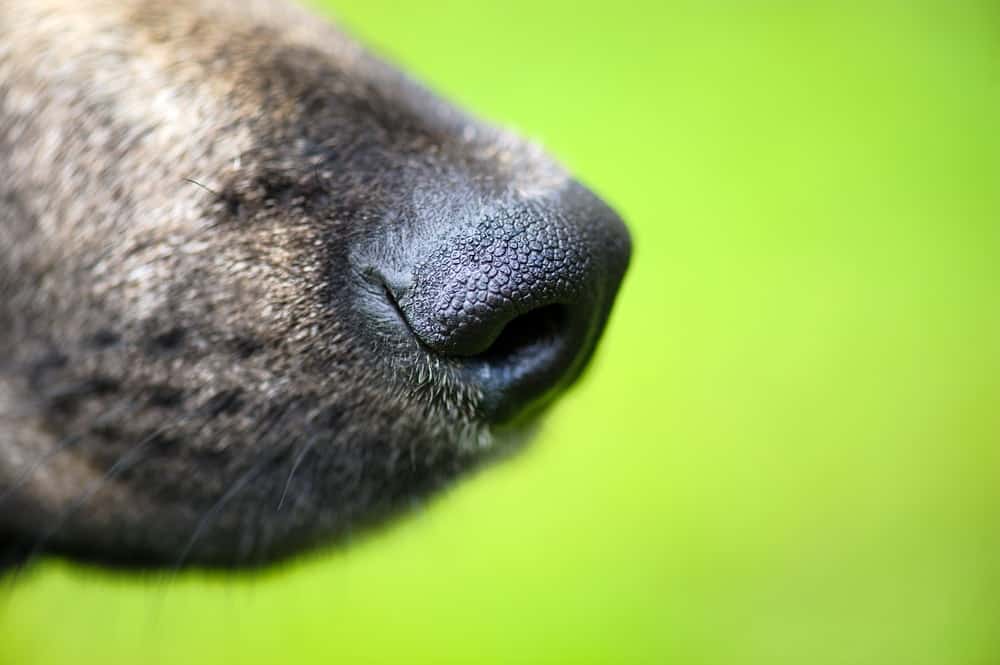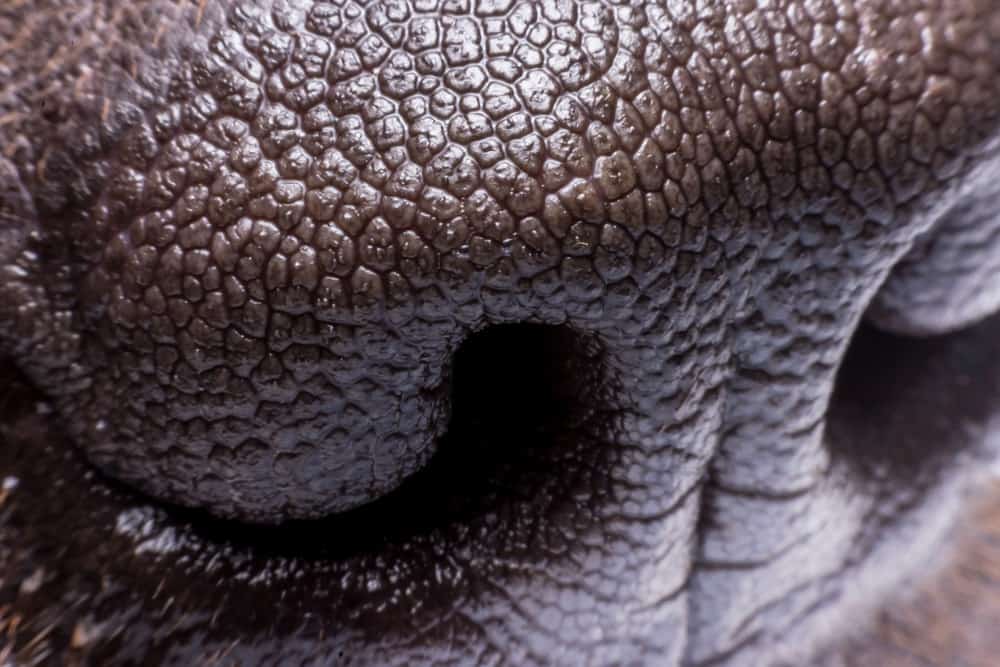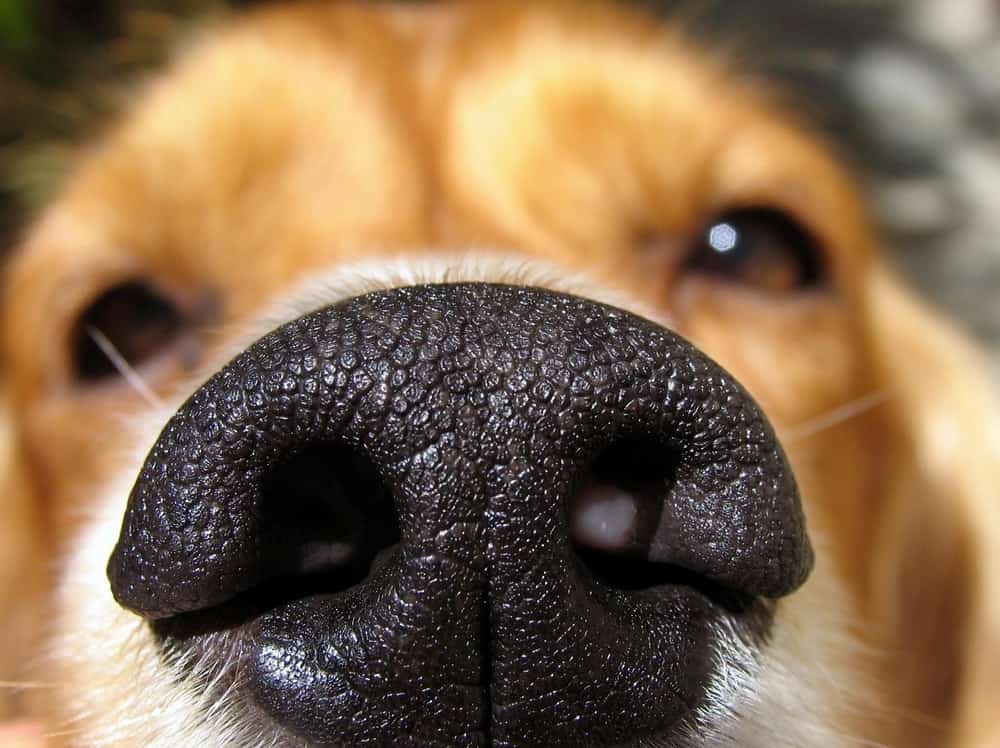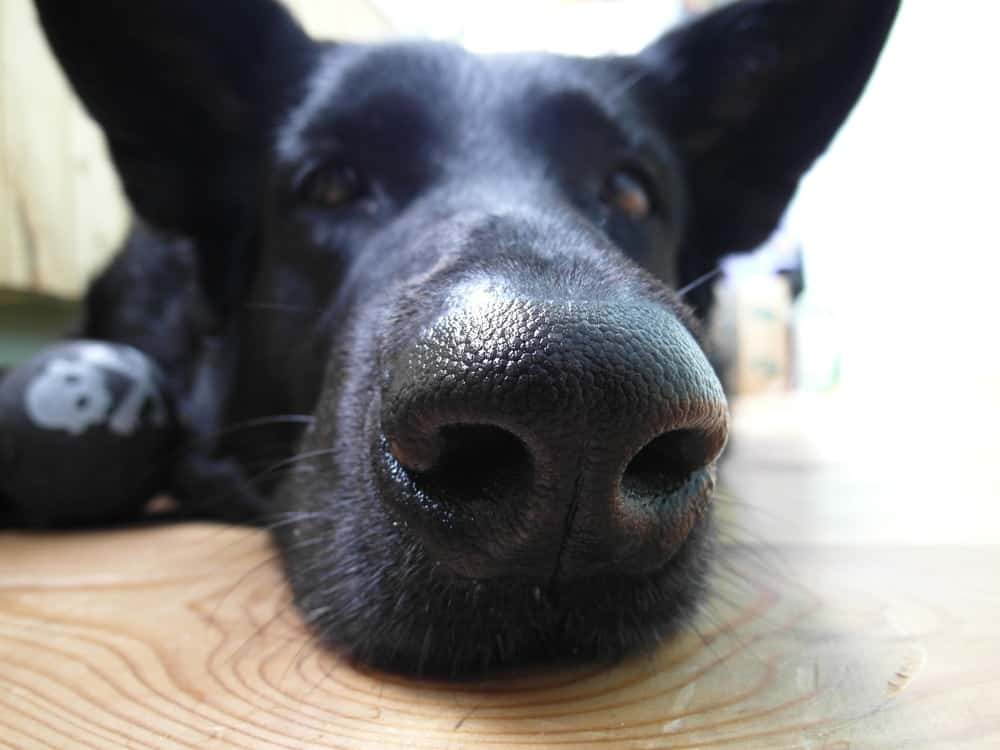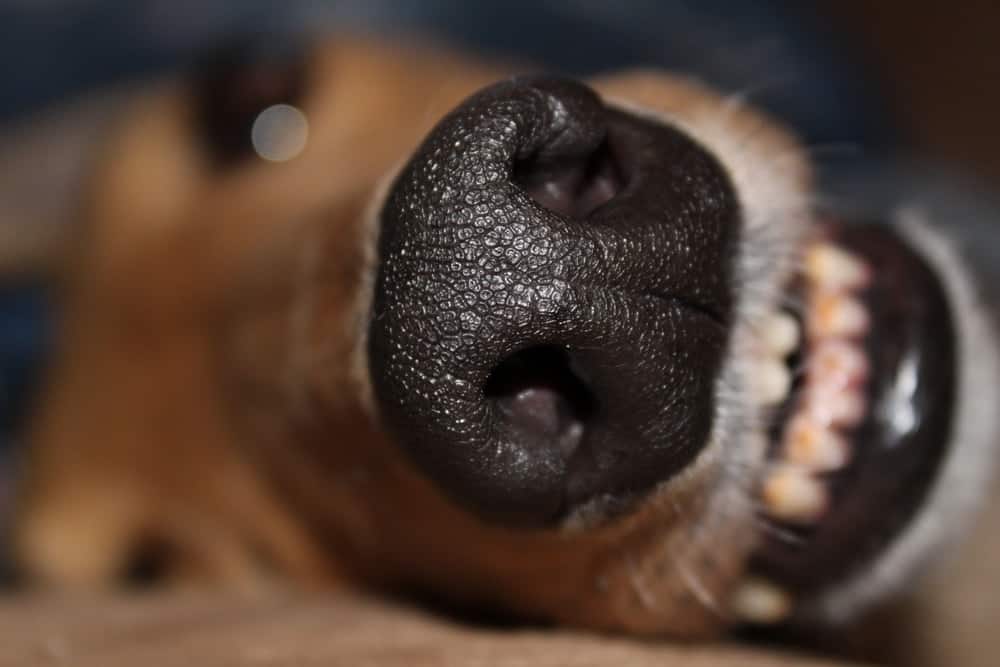A Closer Look at Your Dog’s Most Useful Feature – His Nose!
Take a closer look at your dog’s amazing sense of smell – and keep those awesome olfactories in tip-top shape through nose care, training, and confidence building!
Nature has provided dogs with a nearly perfect sense of smell. If you have a dog, you probably already know that your dog will smell something long before you can. In fact, the average dog has over 300 million olfactory receptors in their noses (compared to a relatively tiny six million for humans). That means, your dog’s sense of smell is over fifty times greater than your own!
Another interesting fact about your dog’s nose is that while many noses look alike, no two are the same. The lines, shapes, bumps, and valleys on the surface of your dog’s nose are as unique as a fingerprint!
And, as their most important body part, your dog’s nose serves several purposes in addition to sniffing out snacks!
Caring for Your Dog’s Nose:
Your dog’s nose is generally relatively maintenance-free. But, you should watch for a few symptoms that could indicate an underlying issue. There’s an old wives’ tale that says you can tell when a dog is sick because his nose will be dry. This is actually a myth! A healthy dog’s nose will quite often be dry to the touch.
However, you’ll want to keep an eye out for extreme dryness, flakiness, scabs, sores, redness or any textural changes that may occur on our around the nose as these could indicate a problem. If your dog eats from a plastic bowl and you notice changes in the texture, color, or dryness of his nose, simply switching to a stainless steel bowl can resolve those issues for many dogs. Plastic bowls can harbor harmful bacteria that irritate the delicate skin in and around the nose.
If your dog’s nose seems excessively dry, consider keeping his sniffer in tip-top shape with a nose balm. Nose balms are skincare products specifically designed to keep your pet’s nose soft and pliable, which helps them to use it more effectively.
Another nose-related symptom to watch for is a runny nose. Dogs don’t catch colds like humans, so a runny nose is a good indicator of an underlying illness or allergy. It could also indicate a foreign object in the nasal passageway – all reasons for a trip to the vet.
Sneezing isn’t usually cause for concern unless it’s excessive and very frequent. Some dogs actually sneeze as a way to release stress, so you may see them sneeze when they’re anxious, excited, or very playful.
Lastly, just like human noses, dogs’ noses are susceptible to sunburn! If your dog spends a lot of time romping and playing in the sun or splashing in the pool, especially if he’s a light-skinned dog, it’s a good idea to apply a dog-safe sunscreen before heading outdoors. Not only will it protect against sunburn, layering-on an SPF can protect against skin cancer, too.
In addition to caring for your dog’s nose physically, it’s important to provide care in the form of mental stimulation, like training and confidence building exercises, that put your dog’s nose to work!
Using Your Dog’s Nose During Training:
Your dog’s sense of smell can be incredibly useful in training!
When housetraining your dog, his sense of smell is one of the most useful tools you can use! To stop inappropriate urinating, the most important step is to eliminate any trace of urine to prevent your dog returning to that spot. If your dog currently potties where he shouldn’t, turn off the lights and shine a UV flashlight, also known as a urine detector, in the area where he’s going. Dogs use their noses to sniff out the right place to potty and generally return to places where urine is detected. Any traces of urine will glow under the UV light. If you can see it under the flashlight, your dog can most certainly smell it and will likely continue to return to that spot. Use an enzymatic cleaner to eliminate any traces and it’ll be much easier to prevent repeat offenses!
On the other hand, if you want to designate a specific area of your yard for your pup to do his business, putting down an attractant will encourage your dog to use that spot simply by sniffing it out!
You can also use your dog’s sense of smell to your advantage while training basic cues like sit, lay down, or shake. With a treat in your hand, you can lure your dog into the desired position, then reward him.
Building Confidence Through Sniffing:
Because your dog is so naturally adept at smelling and sniffing, providing him with fun new ways to use his sense of smell is an excellent way to build confidence.
Instead of feeding your dog out of a boring old bowl, put his food in a snuffle mat or food puzzle to make mealtimes more fun. Snuffle mats are similar to super-shaggy carpet and require your dog to sniff and search for their food. Food puzzles can be simple mazes that require your dog to use his nose to push his food to the point where it can be accessed and eaten, or they can be complex brain-building exercises that require problem-solving and figuring out a series of behaviors that make food accessible. Both are excellent for providing mental stimulation that builds confidence and both serve double-duty to slow down a fast eater.
You can also build confidence through participating in fun new sports that harness the power of your dog’s amazing olfactories. Nosework, tracking, and barn hunt are three such sports that can be played and practiced in the comfort of your own backyard or can be played at the competition level for an added level of fun and excitement for you both! Check with dog training clubs in your area for information about joining one of these exciting, growing canine sports, or check out a book on canine nosework, tracking, or barn hunt to determine if they’re a good fit for you and your dog.
Enjoyed this article? Pin it!
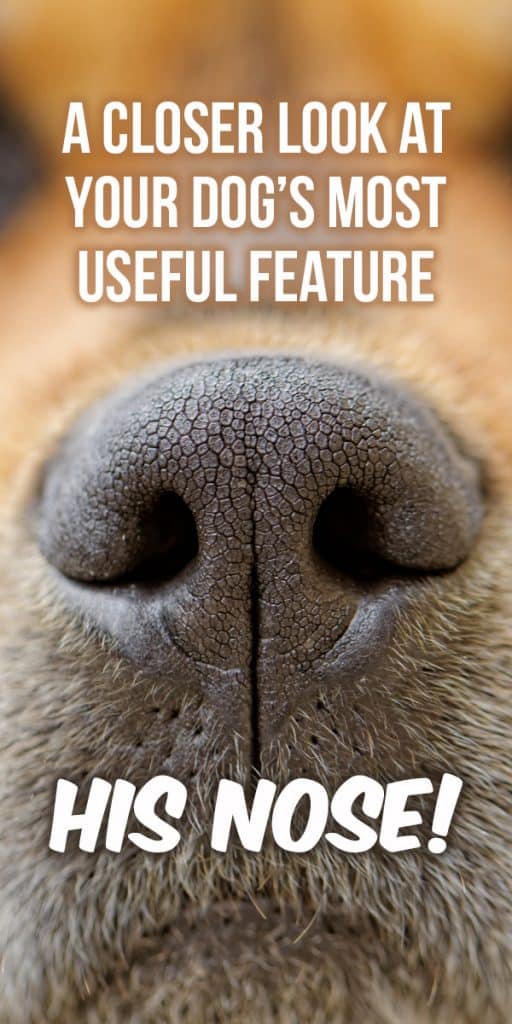
Take a closer look at your dog’s amazing sense of smell – and keep those awesome olfactories in tip-top shape through care, training, and confidence building!


